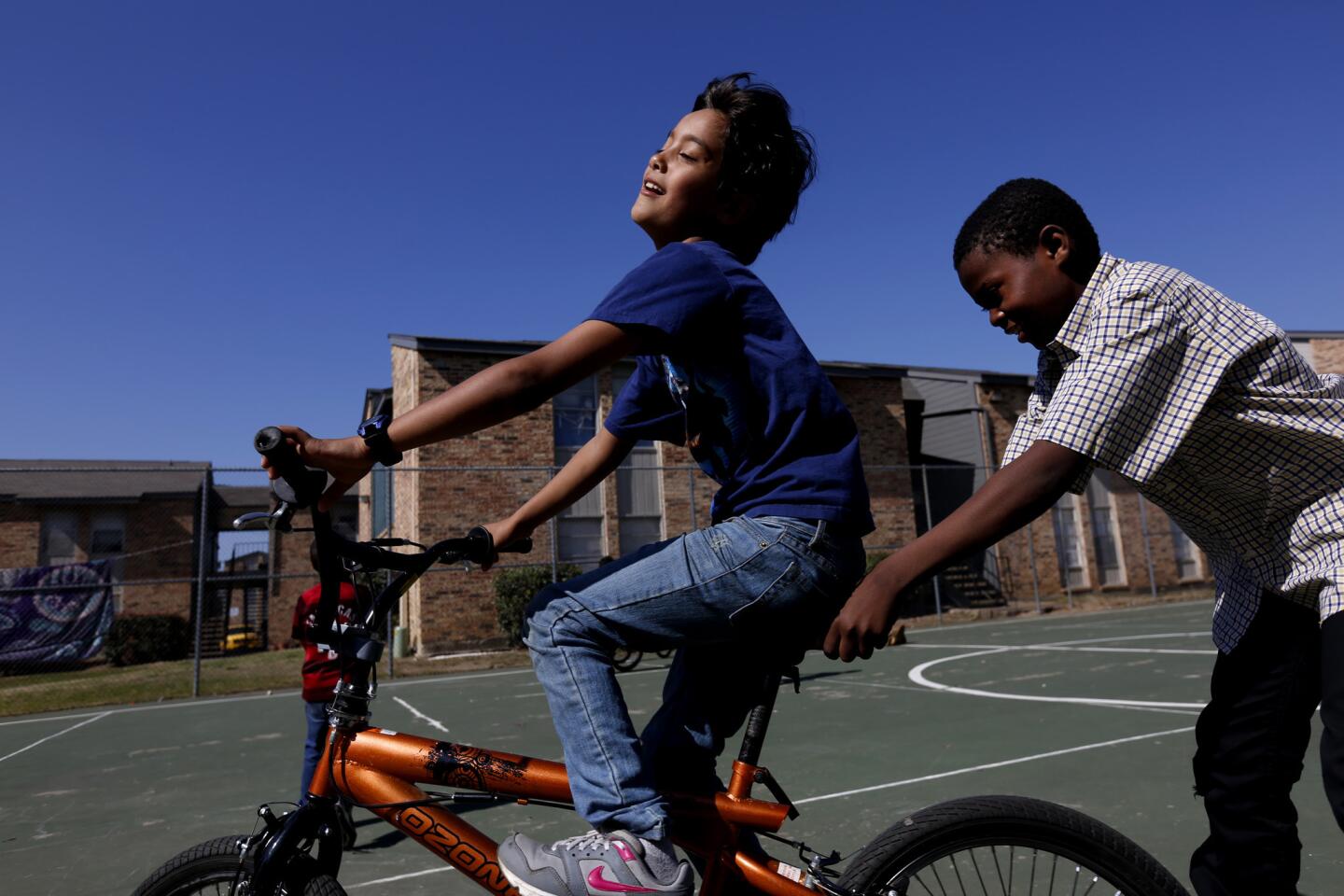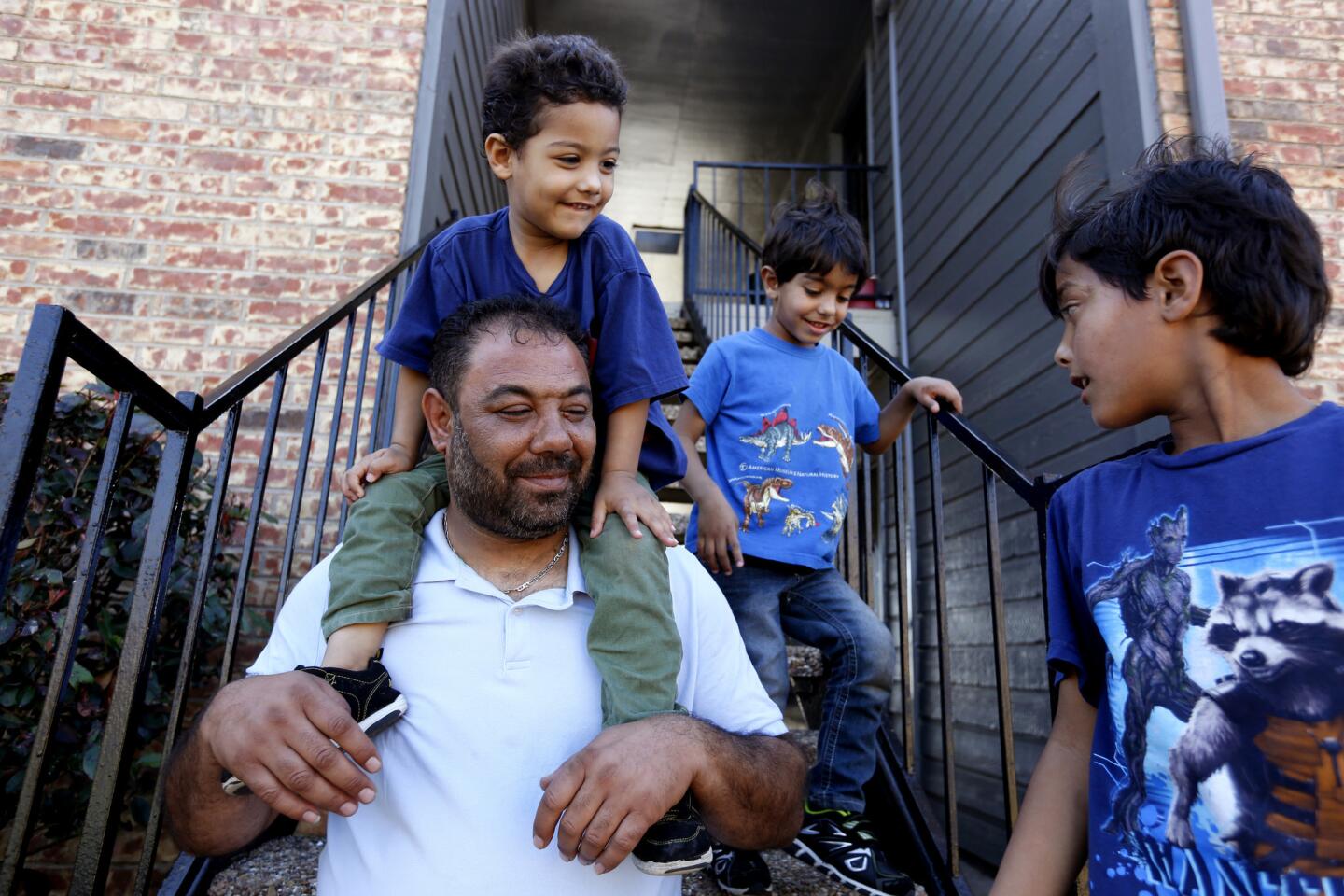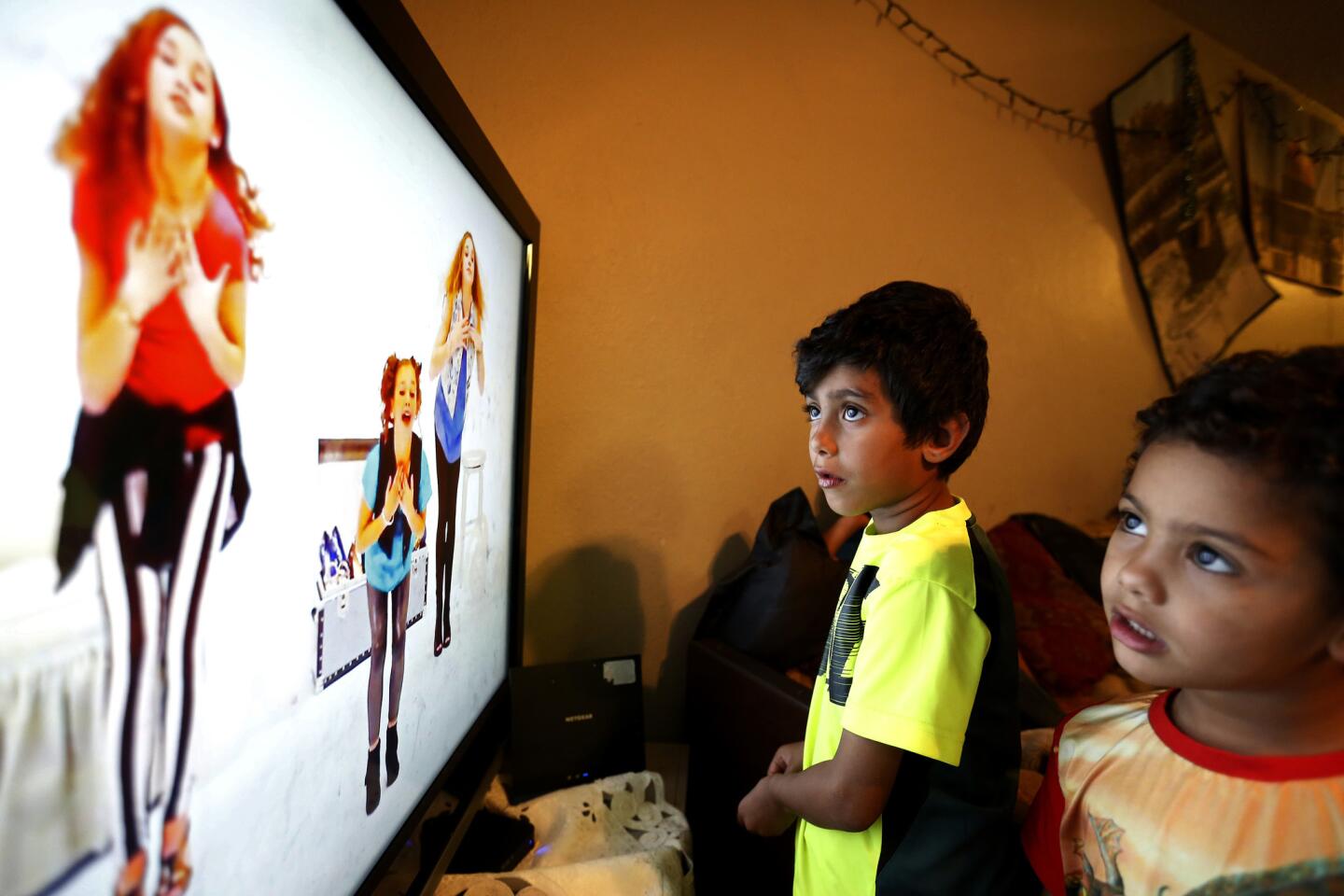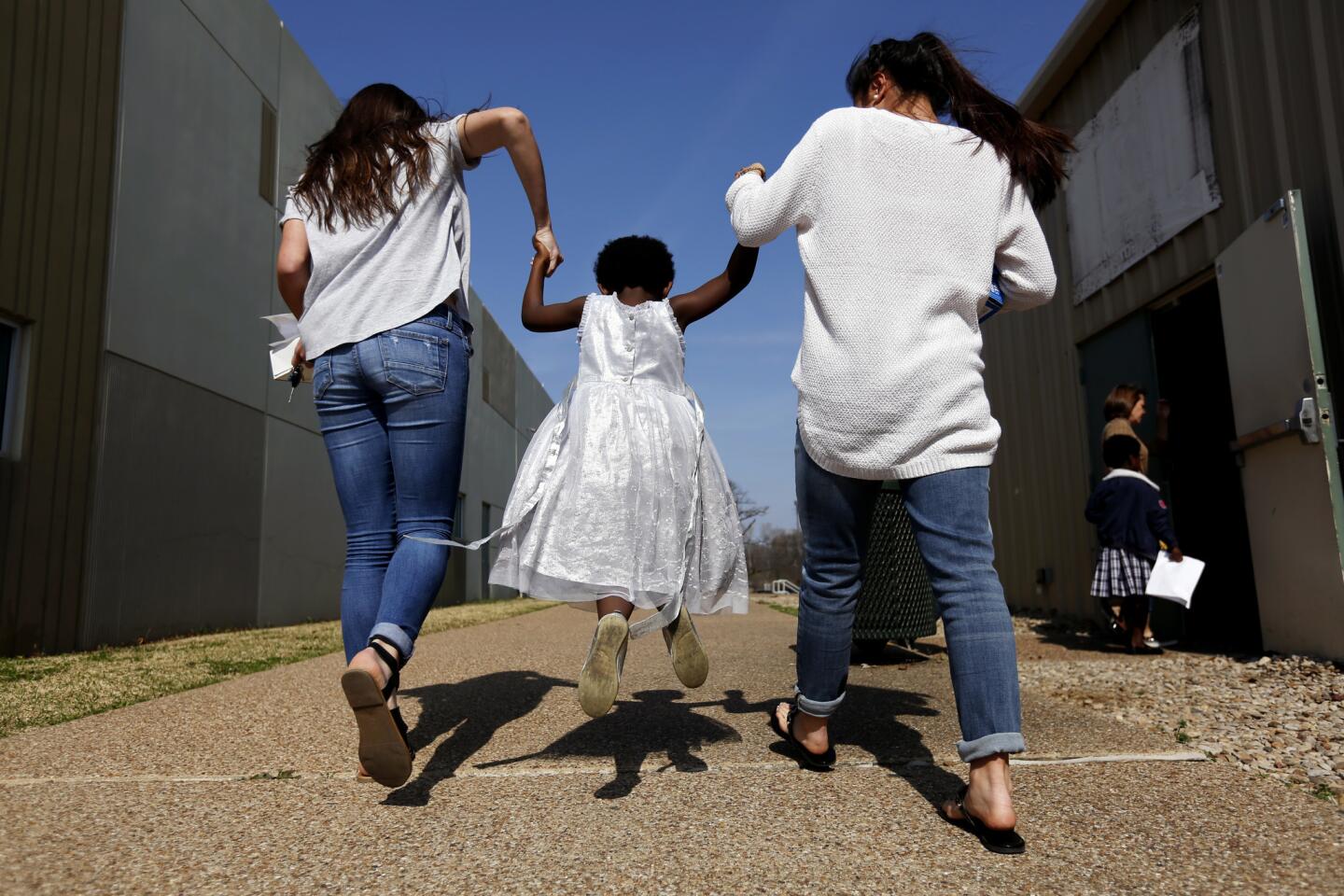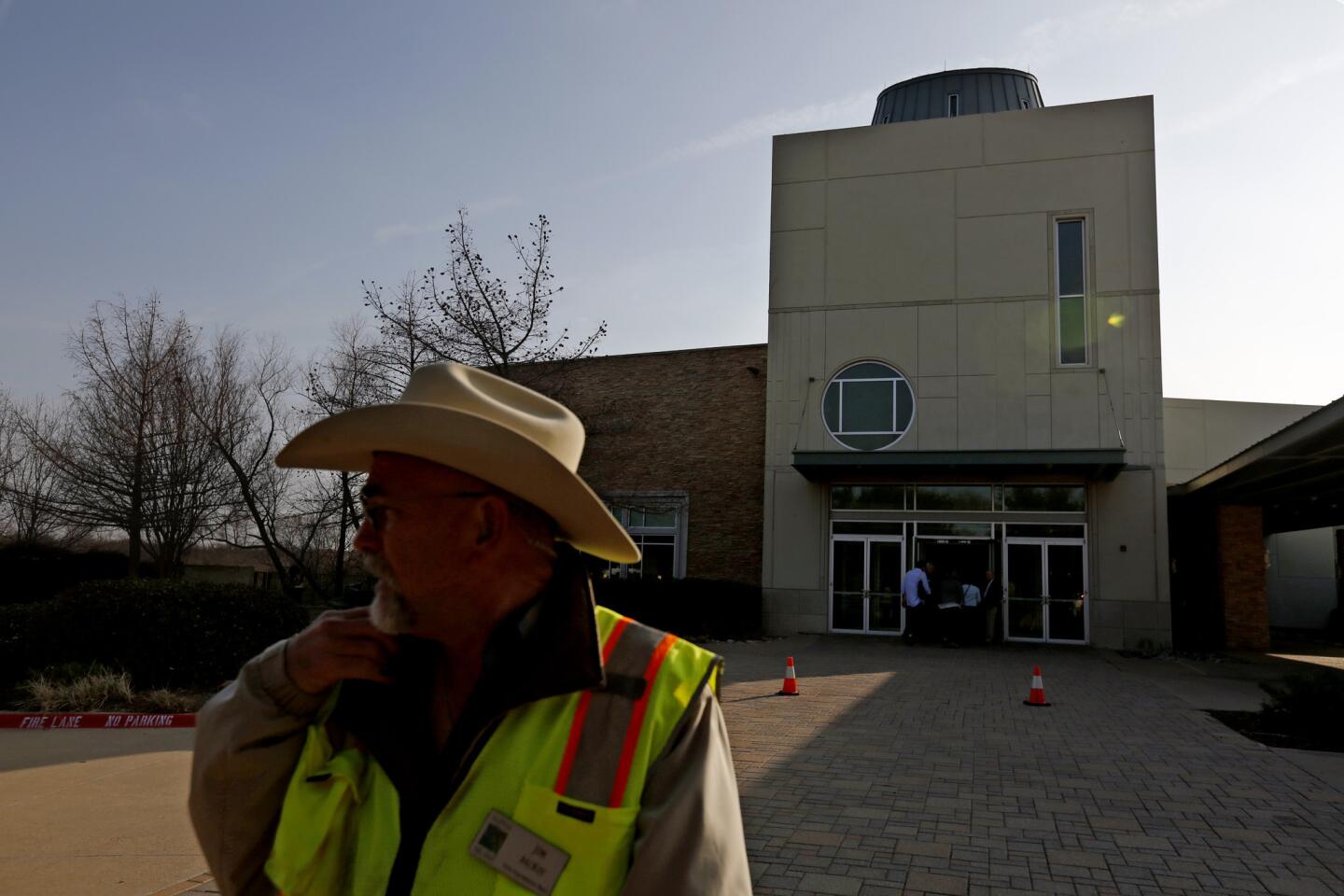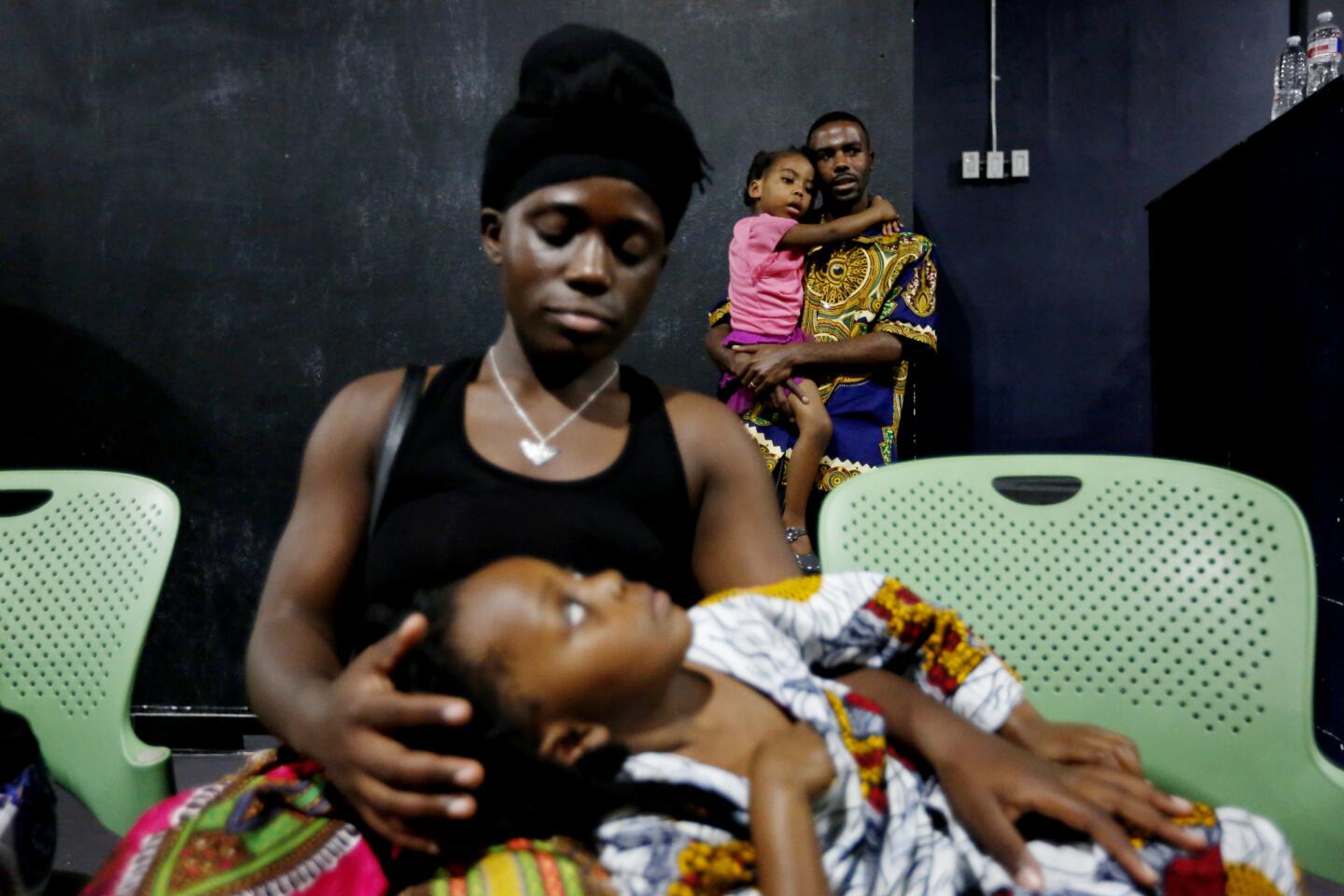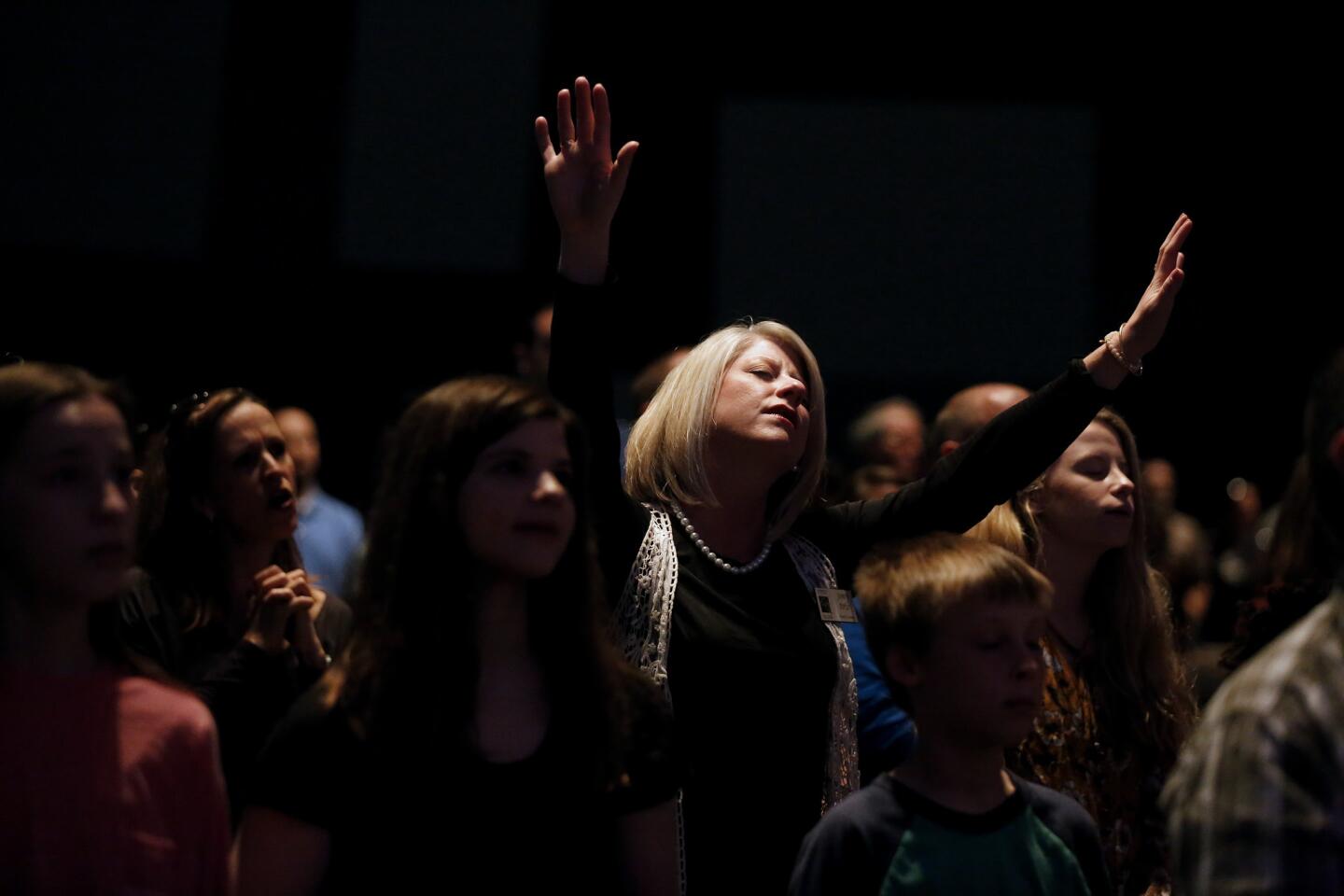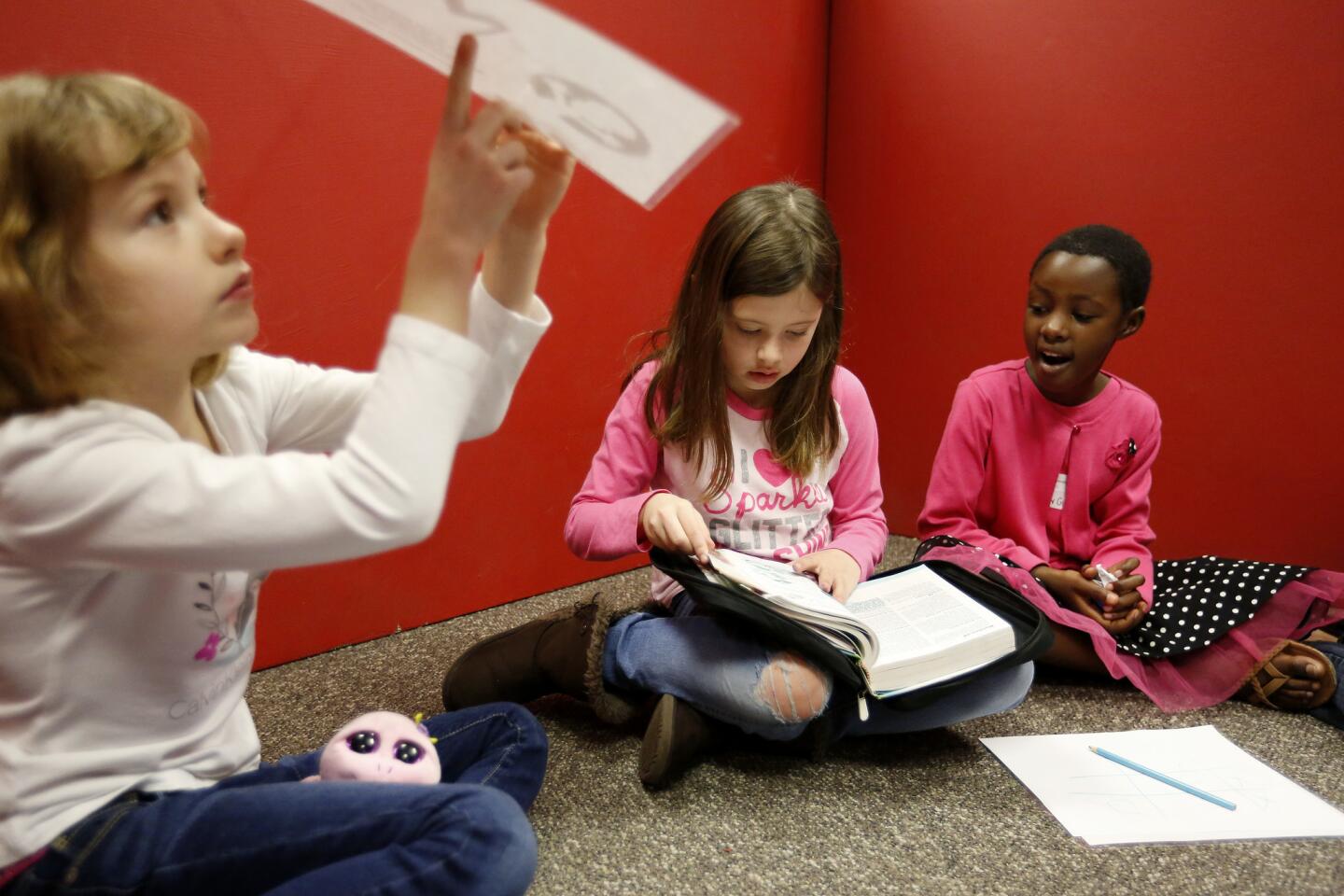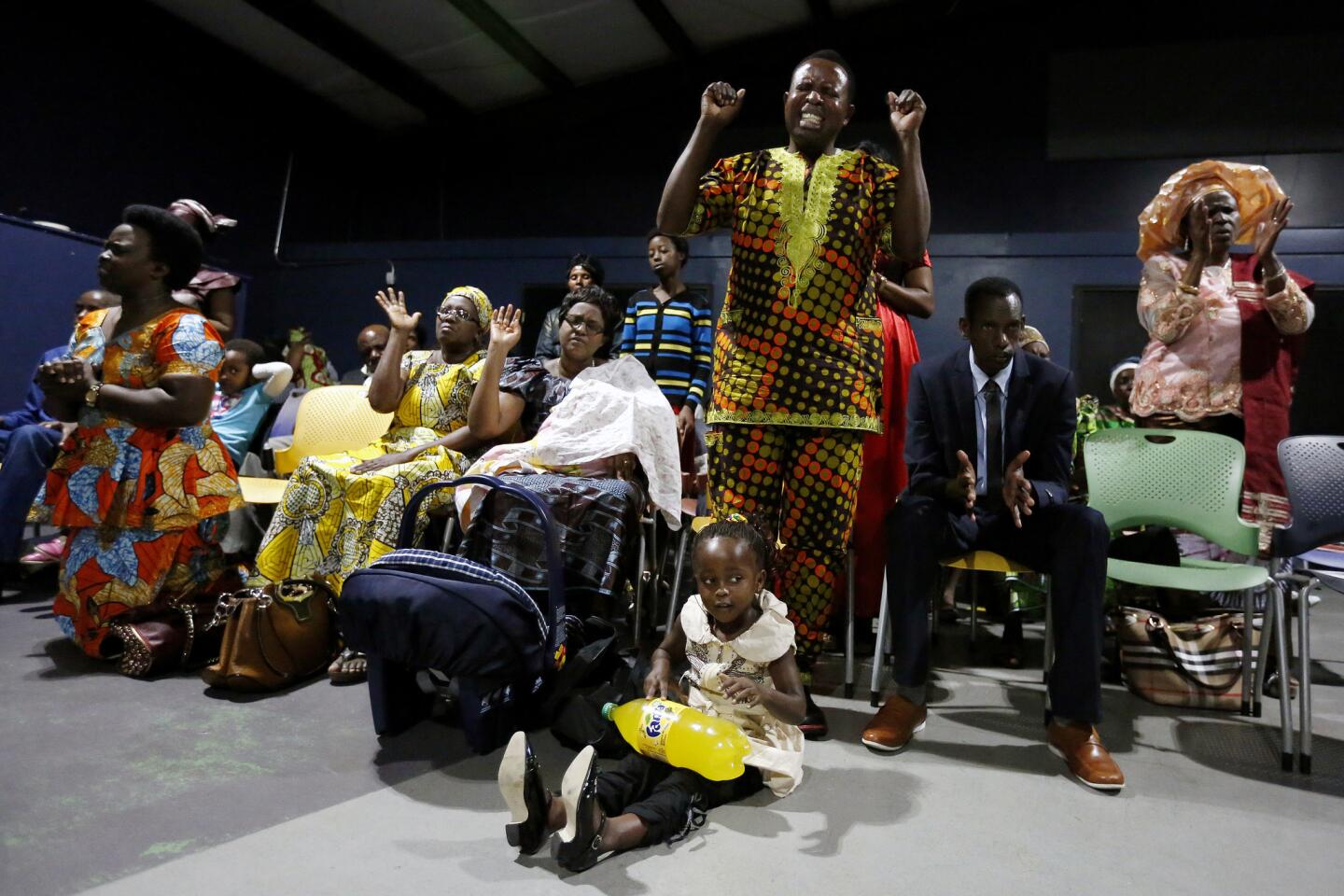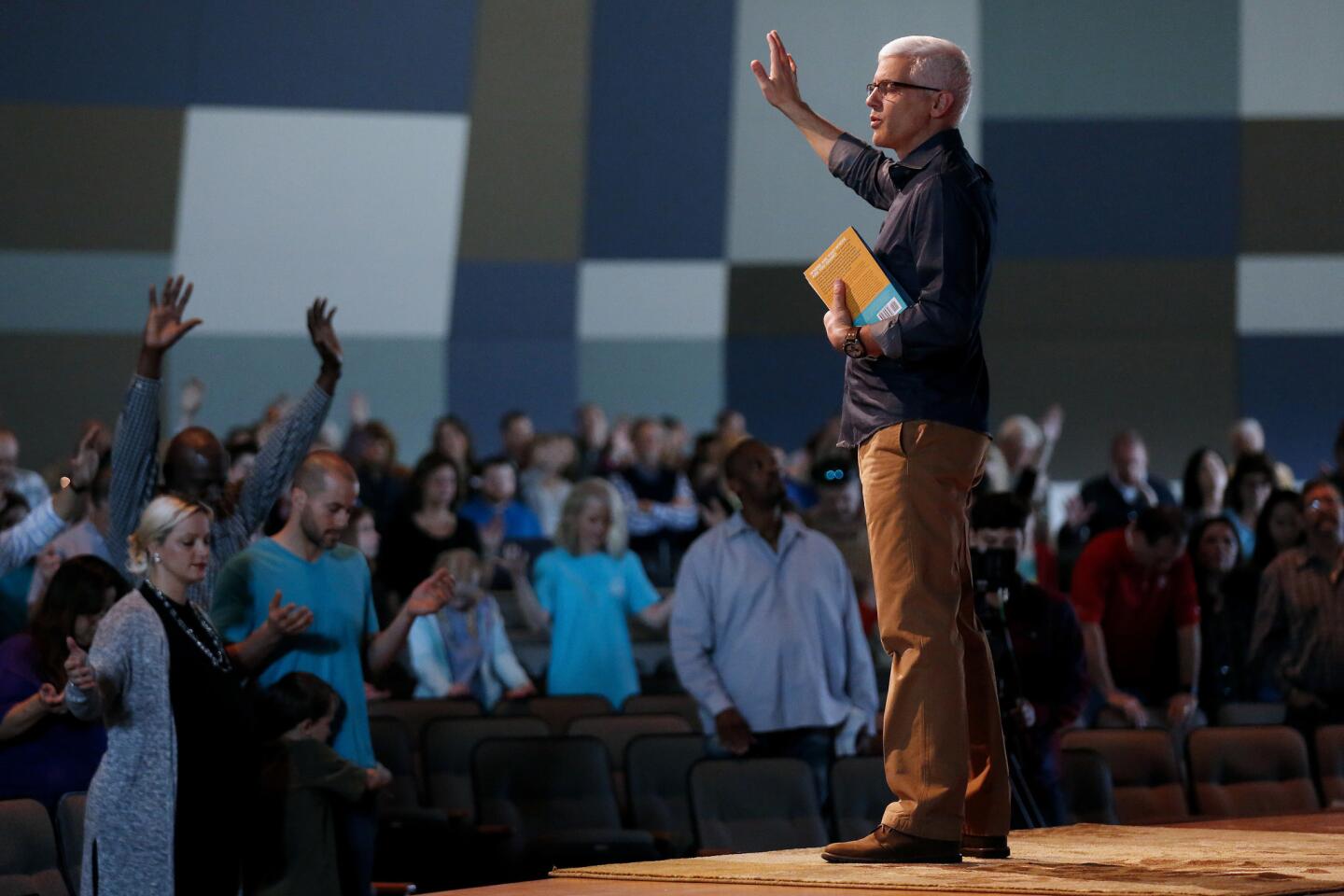A pastor in the Bible Belt opened his church to refugees. Here’s what happened
- Share via
Reporting from Fort Worth — Pastor David Daniels didn’t really have a choice. The refugees were desperate. He could feel that. Their need was great. He could see that. But God was also talking and that, well, he could definitely hear.
So in 2015 he sponsored a Muslim family fleeing Syria and helped them settle in Fort Worth. What’s happened at his church in the years since is a reminder of what decades of studying the Bible has taught Daniels — that God’s will doesn’t always aim toward the easy route. Enter through the narrow gate, the Book of Matthew prescribed.
If God did go for the smooth road, perhaps God wouldn’t have put Daniels in the buckle of the Bible Belt — next to notches of Waffle Houses, Whataburgers and Wal-Marts — and ask him to welcome refugees at a time when the president of the country would rather keep them out.
The national anxiety over immigration and terrorist threats has been felt here in Texas, too, as members of Pantego Bible Church wrestle with their faith, their politics and even the nature of what it means to be a Christian.
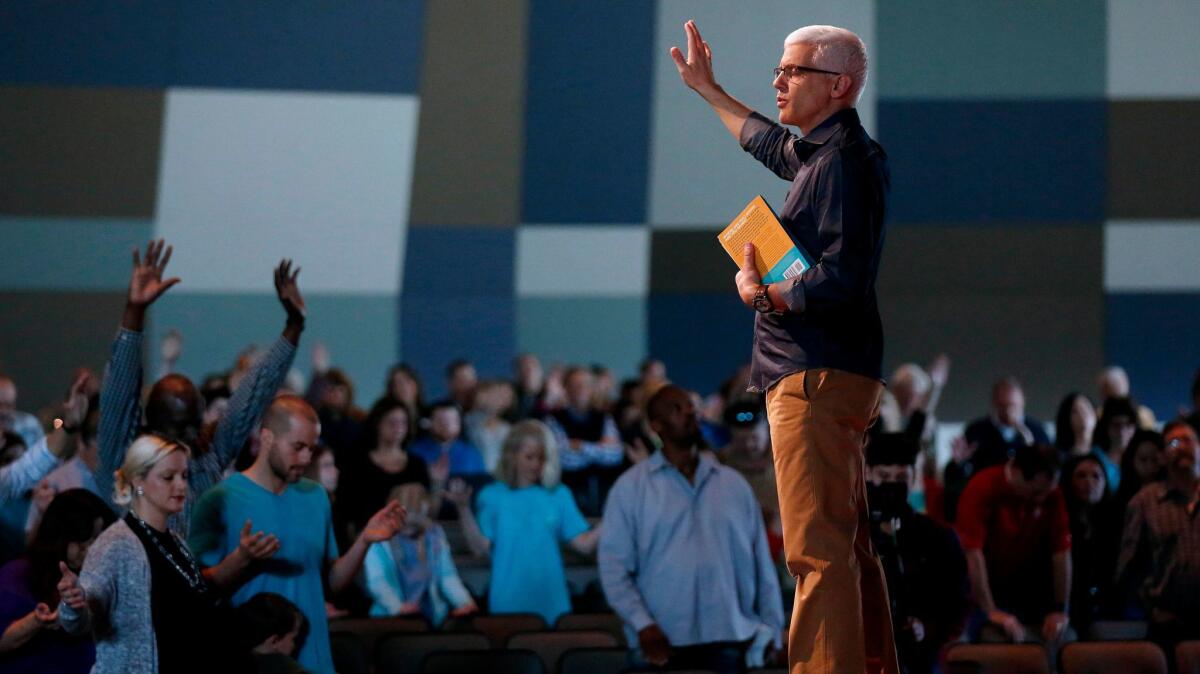
The political DNA of his church, by Daniels’ measure, is GOP. With exit polls showing 81% of white evangelical Christians supporting President Trump in November, he figured most at Pantego Bible Church voted for the Republican, too. Still, he challenged his congregation to not follow the president’s path. Since Daniels’ arrival in 2005, about 300 attendees have left the church for a variety of reasons -- a handful over displeasure with his refugee policy.
“I realize not every church is for every person,” he said. “But there is an internal frustration. I just have to accept that it’s OK for them to move on, and not take it personally.”
But most did not move on — the congregation still numbers 1,300.
Lupe Salazar feels the conflicting emotions of those who disagree with Daniels about refugees but have stayed with their church.
“I wish I had eight hands,” he said, gesturing with his God-given two after a Sunday service. “One the one hand, I agree with the president and extreme vetting, but on the other I know we are Christians and should welcome the stranger. But on the other hand, we need to be secure and safe.”
Salazar heads up security at the church. The first-generation American — and 100% Texan — served in the Marines and proudly recites his family’s journey from Mexico to the Lone Star State. He voted for Trump.
He stayed at Pantego Bible Church because he has roots there and relationships there. His kids grew up there, and his faith has grown there, too. Mostly, he said, he feels that Daniels always listens to his perspective, even if they disagree.
He also respects Daniels’ passion for the issue.
“I agree with his fundamental interpretation of God’s Scripture,” Salazar said. “This isn’t a political issue for David. It’s deeper than that.”
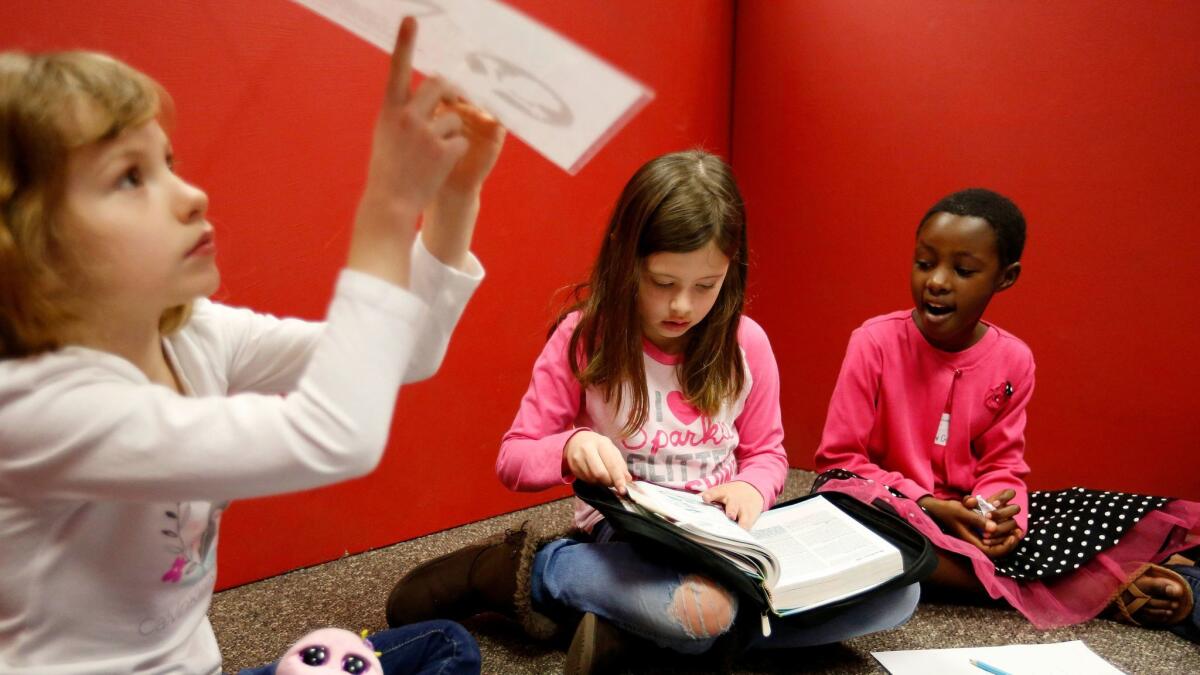
Daniels’ journey really began in 2009, when two African refugees displaced by war showed up at Pantego Bible Church after a Sunday service. One had come from a refugee camp in Tanzania and the other from Burundi.
The Burundi man, Method Bigirimana, told him they were looking for a place to hold a church service. Might they use a bit of space outdoors? Daniels helped coordinate a space indoors for them and Bigirimana brought about 150 refugees to the church.
Brett and Shannon Brier say Daniels expects a lot from his church and has been slowly building the congregation up to be welcoming of refugees. “You can’t expect to come and not do anything,” she said.
The Briers sponsored a teenager who came from a refugee camp in Tanzania. They were inspired by Daniels and others in the church.
It was not an easy path.
Shannon Brier said the 17-year-old they took in spoke almost no English and seemed sullen and ungrateful for their help, and the pressure took its toll on the Briers’ home life.
“Two weeks in and I was crying every day,” she said. “Whatever we had thought it would be, it wasn’t that.”
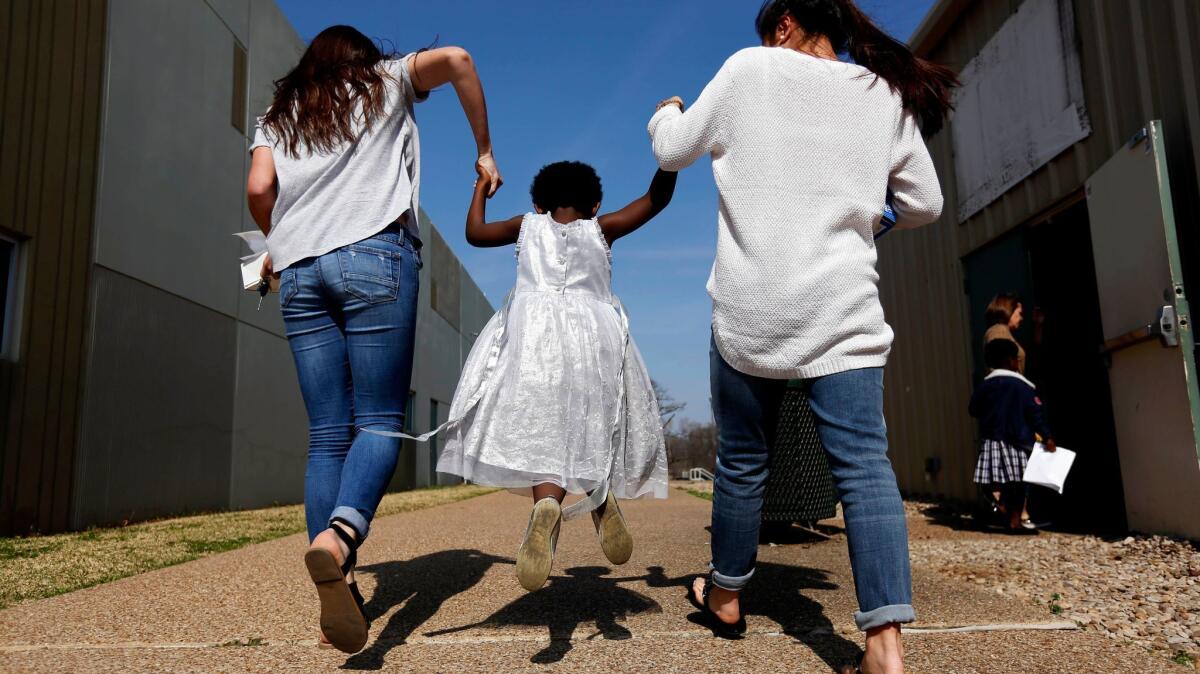
But both agreed their faith and the support of the church helped them. And Brett Brier said living with a refugee opened up them up to a different level of understanding.
Brett Brier, 38, who sports a thick beard and sounds like Matthew McConaughey, had just come back from taking Aline — the 17-year-old — from getting her driver’s license and was having a drink at Starbucks. She seems happier now, they say. She’s even active on her new Instagram account.
In talking to Aline and other refugees, he’s learned they harbor deep psychological scars from trauma they escaped. Brier works in the medical field and says he knows of a doctor who came as a refugee but can’t get work because he doesn’t speak English. Many educated refugees can’t land jobs on par with what they had in their homeland. That frustration explains what at first appeared to be ingratitude.
“In their home country, they were somebody,” he said. “Here, they felt like nobodies.”
Mohammad Afshoun can relate to that.
When he, his wife and six children arrived at the airport in Dallas after fleeing Syria and registering as refugees in Jordan, they didn’t speak any English. His wife was pregnant.
He left a good-paying job as a mechanic at a shop he had taken over from his father. He had employees. An apartment. A life. Then came Fort Worth.
“I didn’t know anything about Texas,” he said through an interpreter. “I didn’t know if it was good or bad. I just hoped it was safe.”
Daniels and his wife, Tiffany, met Afshoun after they agreed they wanted to get more deeply involved in helping refugees. At Pantego Bible Church, the family’s Muslim faith did not escape notice.
“You could feel a little bit of a tremor in our church,” Daniels said. “It was never huge, but you could feel it.”
More than a year later, Daniels is a regular visitor to Afshoun’s apartment. On Friday, he stopped by to help with getting the family their green cards.
When he arrived, he was swarmed by Afshoun’s children. Inside, a large meal was prepared. Afshoun, who hasn’t been able to find work yet, recalled their escape from Syria. How he had gone to the supermarket with 4-year-old Yousef and left him in the car. When he came out, a soldier was holding a gun to his son’s head.
“You need to raise him well, otherwise we’ll kill him,” he was told.
He explained how their apartment was bombed while the family was visiting his wife’s sister. They fled to Jordan and registered through the United Nations as refugees.
Afshoun said he wished Syria could return to what it once was. If it did, he would like to go back. He liked being a mechanic and fixing things. Afshoun smiled as he told Daniels about how, when he was 10, he took apart a radio just to put it back together again.
With a bum leg he’s had it since childhood, Afshoun needs a cane or an electric wheelchair to get around. When the wheelchair broke, a repairman contracted by Catholic Charities came out and was stumped. Afshoun had just fixed it himself — a MacGyver job using a few parts lying around the small apartment.
“It was amazing,” Daniels said.
After the meal, Daniels and Afshoun patted each other on the back and the pastor slipped his shoes on and hugged some of the kids goodbye. Outside, they ran around in the darkness and waved when Daniels pulled away.
The sermon on Sunday was about spreading the Gospel and, as usual, Daniels brought a global perspective — touching on how even “Jesus crossed boundaries and borders.”
Later, Daniels headed over to a service led by Bigirimana, now a full member of the church staff.
Bigirimana, dressed in a crisp white suit, preached in Swahili. Then the congregation — many members in colorful dresses and hats — danced and sang as Daniels entered.
Daniels watched, and when Bigirimana came to the back to greet him, they hugged. They talked briefly about sermon notes and then sat together at a table while the uptempo music played. Daniels clapped along.
Bigirimana told Daniels that, in about 10 minutes, he wanted him to deliver a message to the 150 people gathered for worship.
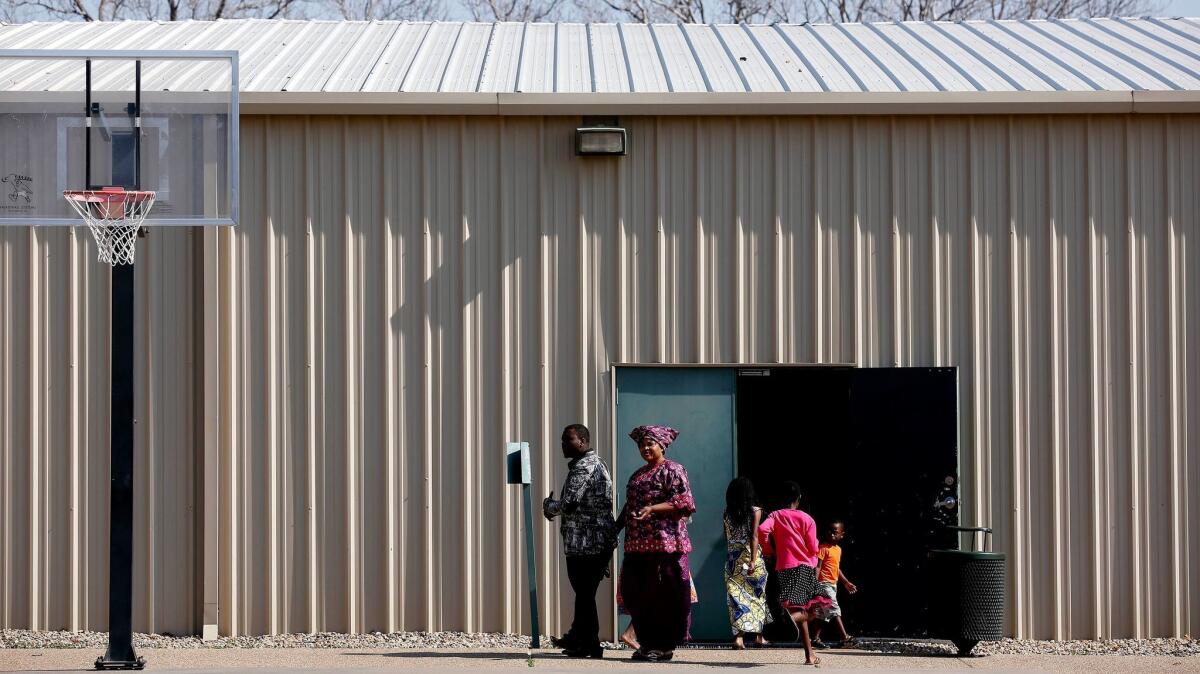
Daniels said later he doesn’t like to interfere with their service for fear of imposing his cultural mores onto theirs. But Bigirimana insisted.
The two stood up before the crowd. Salazar stood in the back watching. Bigirimana spoke for a few moments in Swahili and introduced Daniels.
“In the church, there are no guests,” Bigirimana said in English.
The pastor took the microphone. He was on. He had no choice. Bigirimana, who will be hired as an associate pastor at Pantego in the next few months, interpreted.
“God is with you. I will never leave you or forsake you,” Daniels said. “God did not leave you when you were in Africa. God didn’t abandon you when you moved to Texas.”
“God is for you. He is always for you.”
Twitter: @davemontero
ALSO
Trump has been sued more than 60 times since becoming president: A partial survey
More to Read
Sign up for Essential California
The most important California stories and recommendations in your inbox every morning.
You may occasionally receive promotional content from the Los Angeles Times.
